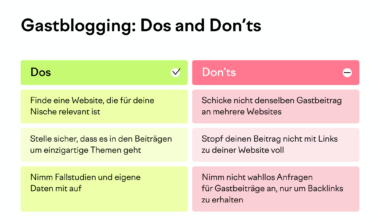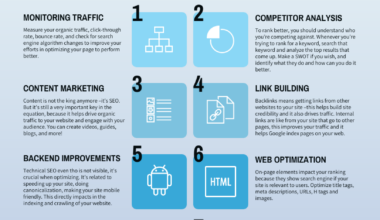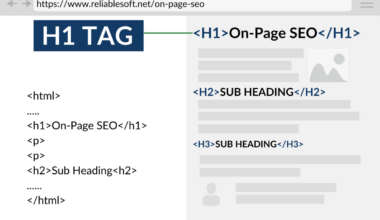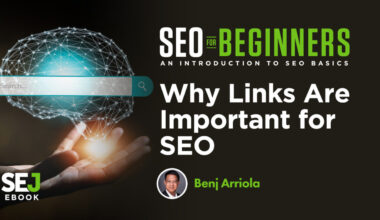Introduction to SEO Mistakes
As a website owner or digital marketer, Search Engine Optimization (SEO) is an essential aspect of your online marketing strategy. SEO helps you to rank higher on search engines, drive traffic to your website, and increase sales. However, if you’re not careful, you could be making some mistakes that could hurt your website’s SEO efforts.
SEO mistakes can be quite costly, and they can negatively impact your website’s visibility and ranking on search engines. Therefore, it’s essential to be aware of these mistakes and take the necessary steps to avoid them.
In this article, we’ll highlight some of the most common SEO mistakes and explain how to avoid them. From not conducting proper keyword research to neglecting mobile responsiveness, we’ll cover everything you need to know to avoid these mistakes and improve your website’s SEO efforts.
By the end of this article, you’ll have a good understanding of the SEO mistakes to avoid and the best practices to implement to ensure your website ranks higher on search engines. Let’s get started!
Not Conducting Proper Keyword Research
Keyword research is the foundation of any successful SEO strategy. It involves identifying the words or phrases that your target audience is searching for and optimizing your website content around those keywords. However, not conducting proper keyword research is a common SEO mistake that can hurt your website’s ranking.
Here are some of the consequences of not conducting proper keyword research:
- Targeting the wrong keywords: Without proper keyword research, you may end up targeting keywords that are too broad or irrelevant to your business. This can lead to a high bounce rate, low conversion rate, and poor user experience.
- Missing out on valuable keywords: By not conducting proper keyword research, you may miss out on valuable keywords that your competitors are targeting. This can result in your website not ranking for relevant keywords, leading to lost traffic and revenue.
- Inefficient use of resources: Without proper keyword research, you may end up creating content that no one is searching for. This can result in wasted time, effort, and resources.
To avoid these consequences, here’s what you can do:
- Use keyword research tools: There are many keyword research tools available, such as Google Keyword Planner, SEMrush, Ahrefs, and Moz Keyword Explorer. These tools can help you find relevant keywords, estimate search volume, and analyze keyword difficulty.
- Analyze your competitors: Look at what keywords your competitors are targeting and try to find gaps in their strategy. This can help you identify valuable keywords that you may have missed.
- Consider user intent: When conducting keyword research, consider the intent behind each keyword. Are people searching for information, products, or services? By understanding user intent, you can create content that matches their needs and increases the chances of conversion.
By conducting proper keyword research, you can optimize your website’s content around relevant keywords and improve your chances of ranking higher on search engines. So, take the time to do your research and avoid this common SEO mistake.
Ignoring On-page Optimization
On-page optimization refers to the practice of optimizing individual web pages to rank higher on search engines and drive relevant traffic to your website. Ignoring on-page optimization is a crucial mistake that can negatively impact your website’s SEO efforts.
Here are some of the consequences of ignoring on-page optimization:
- Poor user experience: Ignoring on-page optimization can lead to a poor user experience, resulting in a high bounce rate and low conversion rate. When users visit your website, they expect to find the information they are looking for quickly and easily. Neglecting on-page optimization can make it difficult for users to navigate your website and find what they need.
- Missed ranking opportunities: On-page optimization is a critical factor in ranking higher on search engines. Neglecting on-page optimization can lead to missed ranking opportunities, resulting in lost traffic and revenue.
- Inefficient use of resources: Without proper on-page optimization, you may be wasting time, effort, and resources creating content that doesn’t rank well on search engines.
To avoid these consequences, here’s what you can do:
-
Optimize your website structure: Ensure that your website has a clear and organized structure that is easy to navigate. Use HTML tags like
for headings,
for paragraphs, and
-
and
-
for lists. This will make it easier for search engines to crawl and index your website.
- Use relevant keywords: Incorporate relevant keywords into your website content, including page titles, meta descriptions, headings, and body text. However, avoid keyword stuffing, which can negatively impact your website’s ranking.
- Improve your website’s loading speed: A slow-loading website can negatively impact user experience and search engine ranking. Use tools like Google PageSpeed Insights to identify and address any speed issues on your website.
- Optimize your images: Use descriptive filenames and alt tags for your images to help search engines understand what your website is about. Compress your images to reduce loading time without sacrificing quality.
By implementing these practices, you can improve your website’s on-page optimization and increase your chances of ranking higher on search engines. Ignoring on-page optimization can be a costly mistake, so make sure to prioritize it in your SEO strategy.
Overlooking Technical SEO Issues
Technical SEO refers to the practice of optimizing the technical aspects of your website to improve search engine ranking and user experience. Overlooking technical SEO issues is a common mistake that can hurt your website’s SEO efforts.
Here are some of the consequences of overlooking technical SEO issues:
- Poor website crawlability: Technical SEO issues can make it difficult for search engines to crawl and index your website. This can lead to your website not ranking for relevant keywords, resulting in lost traffic and revenue.
- Slow website speed: Technical SEO issues such as slow loading speed, broken links, and server errors can negatively impact user experience, resulting in a high bounce rate and low conversion rate.
- Security issues: Technical SEO issues such as not using HTTPS or having a weak website security can negatively impact user trust and result in lost traffic and revenue.
To avoid these consequences, here’s what you can do:
- Use Google Search Console: Google Search Console is a free tool that allows you to monitor and fix technical SEO issues on your website. It can help you identify crawl errors, security issues, and mobile usability issues.
- Optimize your website for mobile: Mobile responsiveness is a critical factor in search engine ranking and user experience. Use responsive design and test your website on different devices to ensure it looks and functions correctly on all screen sizes.
- Use structured data: Structured data provides context to search engines about your website’s content. It can help improve search engine ranking and increase click-through rates. Use tools like Google’s Structured Data Markup Helper to implement structured data on your website.
- Improve website speed: Use tools like Google PageSpeed Insights or GTmetrix to identify and address any speed issues on your website. Compress images, use caching, and minimize code to improve website speed.
- Ensure website security: Use HTTPS to encrypt data between your website and users. Use strong passwords and keep your website and plugins up-to-date to prevent security breaches.
By addressing technical SEO issues, you can ensure that your website is optimized for search engines and provides a positive user experience. Don’t overlook technical SEO issues, as they can significantly impact your website’s SEO efforts.
Neglecting Mobile Responsiveness
With the increasing use of mobile devices to access the internet, neglecting mobile responsiveness is a common SEO mistake that can negatively impact your website’s ranking. Mobile responsiveness refers to how well your website adapts to different screen sizes and devices. If your website is not optimized for mobile devices, you may be missing out on a significant amount of traffic and revenue.
Here are some of the consequences of neglecting mobile responsiveness:
- Poor user experience: When users visit your website on a mobile device, they expect it to be easy to navigate and interact with. Neglecting mobile responsiveness can result in a poor user experience, leading to a high bounce rate and low conversion rate.
- Lower search engine ranking: Google considers mobile responsiveness as a ranking factor. If your website is not optimized for mobile devices, it may not rank well on search engines, resulting in lost traffic and revenue.
- Missed opportunities: With more people accessing the internet on mobile devices, neglecting mobile responsiveness can lead to missed opportunities to reach your target audience and convert them into customers.
To avoid these consequences, here’s what you can do:
- Use responsive design: Responsive design is a design approach that allows your website to adapt to different screen sizes and devices. It ensures that your website looks and functions correctly on all devices, including desktops, tablets, and smartphones. Use a responsive design framework like Bootstrap or Foundation to make your website mobile-friendly.
- Test your website on different devices: Test your website on different devices and screen sizes to ensure that it looks and functions correctly. You can use tools like Google’s Mobile-Friendly Test or Responsinator to test your website’s mobile responsiveness.
- Optimize your images: Compress your images to reduce loading time without sacrificing quality. Large images can slow down your website, resulting in a poor user experience and lower search engine ranking.
- Use a mobile-friendly layout: Use a mobile-friendly layout that is easy to navigate and interact with. Use large, legible fonts, and make sure your website’s buttons and links are big enough to tap on a mobile device.
By optimizing your website for mobile devices, you can improve the user experience, increase search engine ranking, and reach a wider audience. Neglecting mobile responsiveness can be a costly SEO mistake, so make sure to prioritize it in your SEO strategy.
Final Thoughts: Importance of Regular SEO Audits
Regular SEO audits are an essential part of any SEO strategy. SEO audits involve analyzing your website’s SEO performance to identify areas for improvement and opportunities to increase search engine ranking and traffic. Neglecting regular SEO audits is a common SEO mistake that can lead to missed opportunities and poor SEO performance.
Here are some of the reasons why regular SEO audits are crucial:
- Identify technical SEO issues: Regular SEO audits can help you identify technical SEO issues that may be hurting your website’s ranking. By fixing these issues, you can improve your website’s crawlability, loading speed, and security, leading to better SEO performance.
- Optimize content: SEO audits can help you identify content that is not optimized for search engines or user experience. By optimizing your content, you can improve your website’s search engine ranking and user engagement.
- Stay up-to-date with algorithm changes: Search engine algorithms are continuously changing, and regular SEO audits can help you stay up-to-date with these changes. By staying up-to-date, you can adjust your SEO strategy accordingly and avoid penalties from search engines.
- Track progress: Regular SEO audits can help you track your website’s SEO performance over time. By tracking progress, you can identify areas that need improvement and adjust your SEO strategy accordingly.
To conduct a successful SEO audit, here’s what you can do:
- Use SEO audit tools: There are many SEO audit tools available, such as Ahrefs, SEMrush, and Google Search Console. These tools can help you identify technical SEO issues, analyze your website’s content, and track your website’s performance.
- Analyze your website’s content: Identify content that is not optimized for search engines or user experience. Update your content to include relevant keywords, improve readability, and provide value to your audience.
- Check for broken links: Broken links can negatively impact user experience and search engine ranking. Use tools like Broken Link Checker to identify and fix any broken links on your website.
-
Review website structure: Ensure that your website has a clear and organized structure that is easy to navigate. Use HTML tags like
for headings,
for paragraphs, and
-
and
-
for lists. This will make it easier for search engines to crawl and index your website.
By conducting regular SEO audits, you can improve your






















